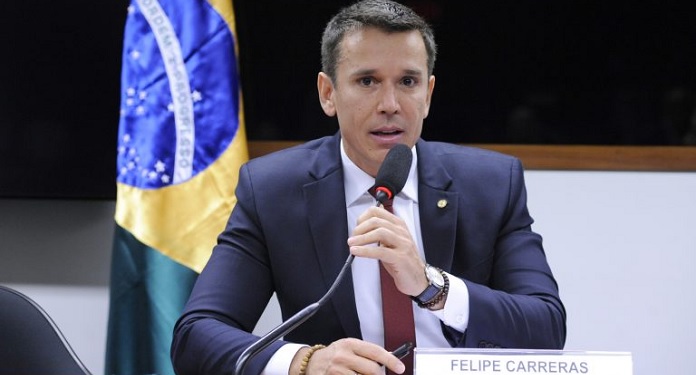At the end of last year, the urgency requirement for the bill (PL) that provides for the regulation of gambling in Brazil was approved with 293 votes in favour. Now, the rapporteur of the proposal, deputy Felipe Carreras (PSB-PE), can make some changes to the opinion in order to gain even more support to approve it in the plenary of the Chamber.
Due to the strong opposition of the Evangelical Parliamentary Front to the agenda, the rapporteur can promote changes, for example, in the destination of the specific tax for the segment that will be created, the ‘Cide-Jogos’.
According to an article on the Metropoles website, one of the possibilities analyzed by the rapporteur is to increase the amount that will be reverted to the national cultural fund. In the preliminary report, Carreras transfers 3% to the sector.
Following the request of parliamentarians in the area, the deputy pledged to increase the percentage of Cide-Jogos to support programs and actions for animal defense and protection.
In the initial version of his text, the rapporteur of the proposal to release gambling games had already agreed with a request from deputy Fred Costa (Patriota-MG), who works in the cause, and allocated 3% of CIDE-Jogos to movements related to the animal protection.
Since the resumption of work in the National Congress, MDB and Novo leaders have been talking to Felipe Carreras in order to request some changes to the proposal. The rapporteur’s intention is to announce a new version of his opinion next week.
According to allies, the president of the Chamber of Deputies, Arthur Lira (PP-AL), will only put the project to a vote in the plenary if he is convinced of its approval.
Project that regulates gambling in Brazil
Congress resumed work on February 2 after the parliamentary recess. The bill 442/91 that proposes the release of gambling in the country emerges as one of the main discussions both among politicians and civil society.
The agenda has been promoting debates for some time, as it will establish which games of chance will be authorized to operate in Brazil, the way in which these modalities will be explored and where the funds collected will be destined.
Supporters of the games believe that the release of activity tends to help the recovery of the economy and national tourism.




















































